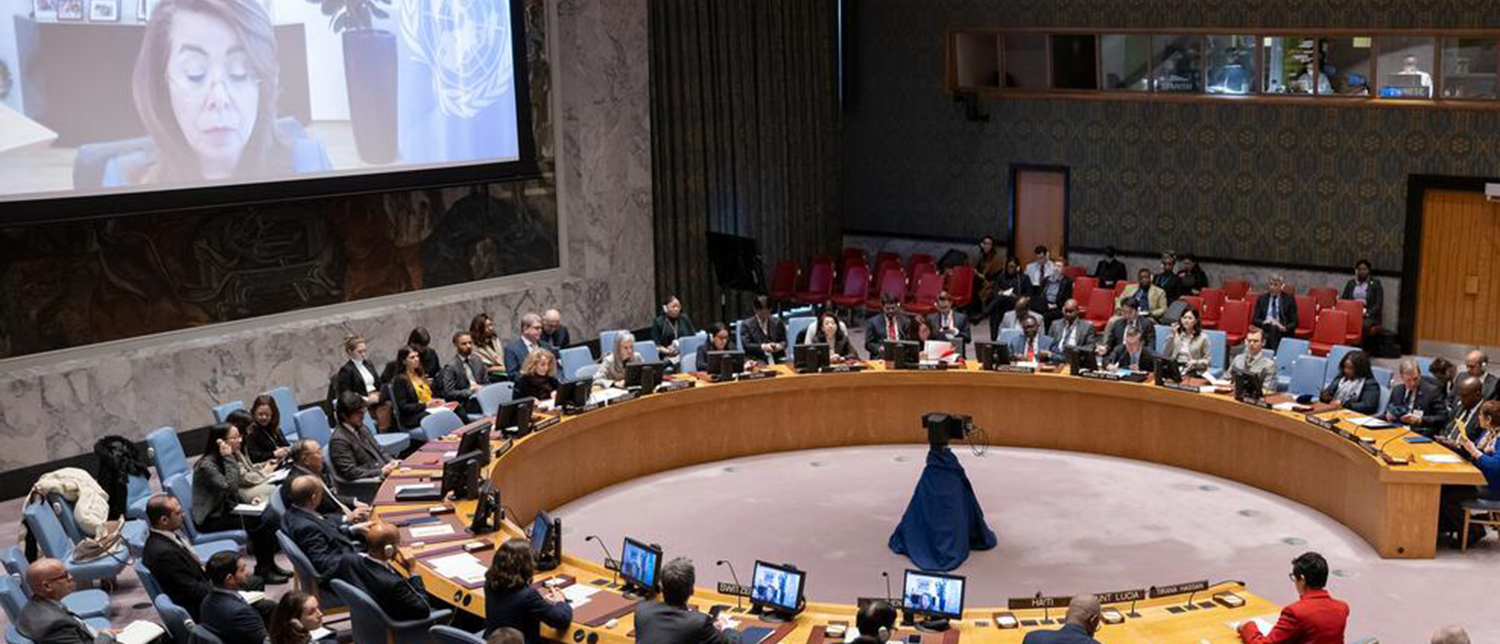
A version of this article originally appeared on UN News.
New York, 25 January 2024:
“As long as gangs continue to have access to highly sophisticated firearms, they will remain capable of subjecting the Haitian population to a reign of terror,” Ghada Waly, Executive Director of the United Nations Office on Drugs and Crime, told the United Nations (UN) Security Council on Thursday.
Ms. Waly briefed the Security Council on UNODC’s latest report on the crisis in Haiti, which includes updates on sources and routes of illicit arms and financial flows in the country.
Ms. Maria Isabel Salvador, the UN Special Representative for Haiti, also briefed the Council and presented the latest report of the UN political office there, BINUH.
More than 8,400 people were victims of gang violence in Haiti last year, including killings, injuries and kidnappings – a 122 per cent increase over 2022, she noted.
“I cannot overstress the severity of the situation in Haiti, where multiple protracted crises have reached a critical point.”
About 83 per cent of the unprecedented surge in killings and injuries occurred in the capital, Port-au-Prince, but violence has spread elsewhere, specifically Artibonite, the largest of Haiti's 10 departments.
South of the capital, gangs conducted large-scale attacks to control key zones and continue to systematically use sexual violence in areas under their control, putting women and girls as young as 12 at risk.
Ms. Salvador said that since her last briefing in October, at least 75 people were reported killed by civilian vigilante movements that have emerged as collective defence against the gangs.
Meanwhile, BINUH has continued efforts to enhance the capacity of the Haitian National Police (HNP), but high attrition rates have further diminished the force’s ability to counter gang violence and maintain security.
Last October, the UN Security Council authorized the deployment of a multinational security support mission (MSS) to back Haiti’s beleaguered police force, which Kenya offered to lead. A 2022 sanctions regime targeting gang leaders and their financiers was also renewed later that month.
During her briefing, Ms. Waly elaborated that UNODC has identified four major sea and land routes being used for illicit firearm and ammunition flows, mainly from the US.
The report also found that there are 11 recorded informal or clandestine airstrips spread out across Haiti.
“They represent a blind spot that is possibly being used by traffickers and smugglers, bearing in mind that smaller aircraft flying directly between the United States and Haiti are difficult to monitor,” Ms. Waly noted.
Regional dynamics are also important as the deepening crisis in Haiti is not occurring in a vacuum, she added, noting that illicit firearms are a growing concern across the Caribbean, “feeding gang-related activity and drug trafficking in a vicious circle”.
The report also documents action to combat corruption and illicit financial flows, “which are major factors enabling violence and organized crime and plaguing Haiti’s own justice institutions”.
“Nevertheless, anti-corruption efforts continue to be impeded by insufficient capacity, lack of forensic equipment and limited expertise in conducting complex investigations,” she said.
UNODC is working on the ground with Haitian authorities to improve capacities and equipment for border management and maritime security, Ms. Waly noted.
The next UNODC report will focus on a detailed analysis of gang dynamics in Haiti.
“As the situation in Haiti evolves, there is an urgent need to better understand and stem illicit firearms trafficking in the country, enable Haitian authorities to secure their borders, and support the Haitian National Police,” Ms. Waly concluded. “These are essential steps to pave the way for an inclusive and viable political process, which is the only way for Haiti to achieve long-term peace and security.”